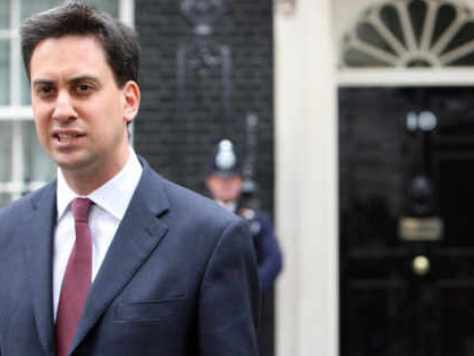Labour party leader Ed Miliband is to lay out his battle plan for the May 2015 election on Tuesday in a bid to become the next prime minister.
In his keynote speech in the last annual party conference before the vote, Miliband will vow to restore faith in Britain, shaken by a Scottish referendum that rejected independence but forced a debate on a constitutional overhaul of the United Kingdom.
The speech will lay out six goals including raising the number of people buying their first homes each year, halving the number of low-paid workers and creating green technology jobs.
Press reports said that Miliband would also announce a tax on wealthy homeowners to fund Britain’s National Health Service.
Opinion polls of voting intentions indicate the Labour party enjoys a slight lead over the centre-right Conservatives led by Prime Minister David Cameron, although Miliband is unpopular with voters.
The party leader, who has promised to hike the minimum wage by 2020, will try to convince voters that left-leaning Labour can be trusted to run the world’s sixth largest economy, arguing that a strong economy can be created without big spending.
On Monday shadow finance minister Ed Balls indicated tighter controls on spending and a willingness to make “tough decisions” such as a cap on child benefit in a bid to emphasise budget responsibility.
Opinion polls indicate that Miliband is less trusted on the economy than Cameron and his finance minister George Osborne, who have cut public spending and overseen a burgeoning economic recovery.
British politics has long been dominated by the two main Labour and Conservative parties, but neither won a decisive enough victory to rule alone in 2010, forcing Cameron to forge a coalition with smaller party the Liberal Democrats.
The Labour and Conservative parties’ ability to win decisive majorities could be further eroded if the eurosceptic and anti-immigration UK Independence Party builds on success in European parliament elections in May 2014, when it emerged the most popular party.
Miliband is also expected to address the aftermath of the referendum in Scotland, long a bastion of Labour support, but where its voters were split over whether to support independence.
The party, which campaigned against Scotland splitting from the rest of the UK, said on Monday it would have to work to win back Labour voters who backed independence.

COMMENTS
Please let us know if you're having issues with commenting.